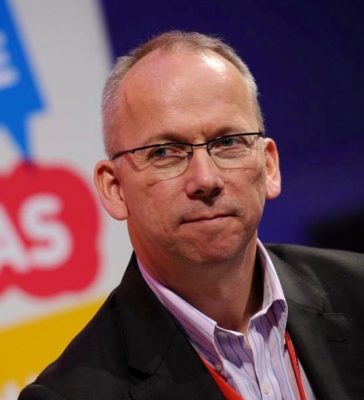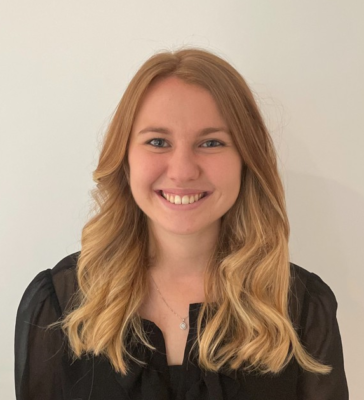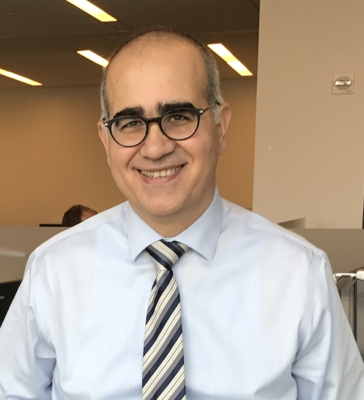
Oliver Gadsby
Current Employer/Organisation Name
WTiN
What have you been doing since leaving Exeter, and what are you doing now?
Having taken a languages degree, I was keen to head abroad, and did a TEFL course at international House in London. That gave me the springboard to go and teach in Casablanca, and to explore Morocco, for an enjoyable year. I then moved to Stuttgart, in Germany, and started a career in publishing. I was a desk editor for Klett in Stuttgart, editing English and French language books for German schools. Having moved with my (Exeter-graduate) wife back to the UK, I became a commissioning editor with Hodder & Stoughton, and moved on to be a director of that business. When Hodder moved to London, I headed west to Cheltenham, and joined educational publisher Stanley Thornes, as a director. After a couple of years, the Dutch owners of that business, Wolters Kluwer, asked whether I would consider a move to Stockholm. A big decision for me and my wife – we had three small sons by this point – but we headed to Sweden, and had three glorious years there, enjoying the snowy winters and the long sunny days of summer. I was sales and marketing director for Liber AB, one of the biggest publishers in Scandinavia (and took the opportunity to learn Swedish). We returned to the UK in 1999, and I became CEO of Stanley Thornes, publishing school books and digital resources. We acquired one of our big competitors, Thomas Nelson, and the company became Nelson Thornes. My next post was with Informa, the large plc spanning publishing, conferences, exhibitions and training. Initially, I worked with Taylor & Francis, their academic publishing subsidiary, and I then became Director of Strategy and Acquisitions for the group. We completed the $1.4 billion acquisition of IIR Holdings, which changed Informa substantially. Then into a business backed by private equity. I was approached to become CEO of Continuum Publishing in London and New York, and took on that role in 2007. With a strong management team at my side, we turned the business round, became IPG Independent Publisher of the Year in 2011, and then sold the business, in a very healthy deal, to Bloomsbury Publishing, where my team went on to thrive. With two former colleagues, I then launched Rowman & Littlefield International, an ambitious academic publisher, in London. We built a new list from scratch, and were Newcomer of the Year in the IPG Awards in 2015. A highlight of our publishing for more general readers was Peter Hain’s Mandela – An Essential Life. In 2016, our US backers, Rowman & Littlefield, asked me to run the American business, which published some 800 books each year, from textbooks to monographs and professional guides. I was a frequent visitor to Washington DC, calling a halt to that sequence at the end of February 2020, which turned out to be good timing in relation to Covid-19. I’m enjoying my current mix of activities. I am Chairman of WTiN, an online information and events business serving the textile industry. I am on the board of the Independent Publishers Guild (IPG), and Publishers’ Licensing Services (PLS). I am a director of the Stationers’ Company in the City of London, which was founded more than 600 years ago, and continues to be an important network and resource for the publishing, printing and digital content industries. I mentor students and young people in publishing – and in my spare time, tennis and cycling are favoured activities.
Why did you choose this career? And what do you enjoy most about your work?
Working in publishing is a lovely blend of creativity, business and technology – all in the context that you feel you are doing something of value to the world. I love the way that early conversations with an author about an idea for a book blossom over time into a physical object, a series of digital publications, a global sales effort, interaction with customers all over the world – and more ideas for the next project. Over time, leading a team of creative people also became a central part of an enjoyable job.
Please tell us if you were a member of any societies, groups or sports clubs?
I was, as I recall, president of the German society.
What did you enjoy most about your programme and what was the biggest highlight?
I very much enjoyed plunging into French and German literature, and the books we studied all that time ago still rattle round in my head (and in some cases, sit on our shelves). Baudelaire and Günter Grass stand out. The year abroad was great fun, and helped my French a lot. I was an assistant d’anglais in a lycée in a ski resort, which sounded good, and was. I skied every day, and that enthusiasm has passed on to our three sons. As for the highlight of the programme: I met the woman who became my wife! We’ve enjoyed using our languages, living abroad, and bringing up a family together.
What did you enjoy most about studying here?
I enjoyed having the time to think and learn from others. Grappling with literature and being serious about language were right for me at the time, and I formed close friendships which persist 35 years later. Translation into and out of French and German was something I enjoyed, and it encouraged a certain precision with language which is helpful, in life and in business. At the time, living far from campus was the thing to do (or at least so I and others imagined), and I shared a farmhouse in my second year which was near Cullompton. It cost us each £5 a week, which was cheap even then – and firewood was free. My final year was close to the university, which was no bad thing.
Why did you choose to study at Exeter?
The sun was shining when I visited, I recall, whereas it was pouring with rain in Durham. I was glad of my choice, and the location and surroundings at Exeter are hard to beat. The course, too, was right for me, though I had some additional learning to do when I started to work in Germany after graduation, and business language skills had to be hastily assembled.
What skills and experiences have been most useful for your career?
Languages are valuable, and they certainly helped me get my career started. Seeing the world through the prism of different cultures and languages helps in publishing for a global readership. Reading text attentively and with an open mind is a skill that an Exeter languages degree fostered. The year abroad instilled independence and the ability to form a social network in an unfamiliar setting. And of course, the familiar study skills of listening to others, absorbing and filtering information, and drawing thoughts together in a coherent written form, are useful throughout any career.
What advice would you give to a current student who wishes to pursue your career?
Publishing is a many-faceted industry, so do some research into the various sectors – consumer, educational, scientific, academic, business… – and the companies, large and small, which thrive in that industry. Many people think of editorial positions when they think of publishing, but there is a host of other roles. Roles in social media, marketing, production, digital platforms, sales, foreign rights and more might fit your skill set. Consider doing a Master’s degree in publishing, as a route in. It is not essential by any means, but can open some doors. Look at the Publishers’ Association (PA) and Independent Publishers’ Guild (IPG) websites for career information and job openings. The Bookseller and BookBrunch are very useful sites for the community. And think globally! Publishing is a worldwide activity, and one in which many people find opportunities to live and work abroad.
What are your plans for the future?
I’m working on a major publishing project for launch in 2021, and working with the boards of various organisations connected to the industry. When travel becomes easier again, I look forward to spending more time in southwest France.

